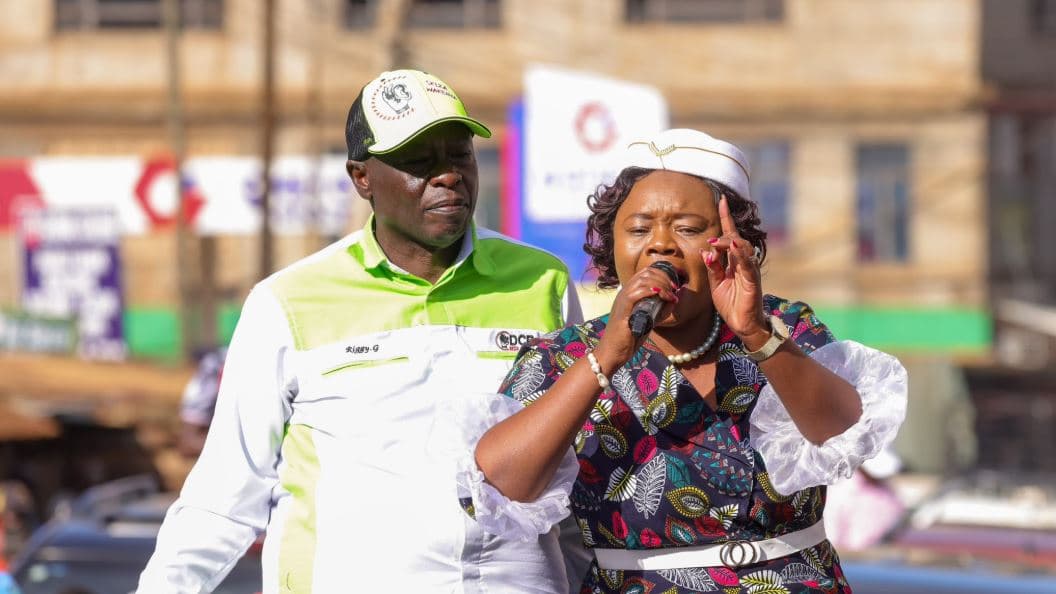We're loading the full news article for you. This includes the article content, images, author information, and related articles.
The National Cohesion and Integration Commission clarifies its operational status after a misleading media report coincided with senators' threats to dissolve the agency over perceived inaction on rising hate speech.

The National Cohesion and Integration Commission (NCIC) issued a formal statement on Wednesday, 5th November 2025, to correct a media report that claimed it had been disbanded. In the press release, NCIC Chairperson Samuel Kobia clarified that the commission remains fully operational. The confusion arose from a confluence of events: a heated Senate session on Monday, 3rd November 2025, where the commission was heavily criticised, and a subsequent newspaper article. The NCIC explained that the tenure of the current commissioners, who assumed office on 19th November 2019, is naturally concluding on 17th November 2025, as stipulated by their single, non-renewable six-year term. "We therefore wish to clarify that recent media reports, specifically the Nation Media, alleging the disbandment of the Commission are incorrect, misleading and a misrepresentation of the facts," the NCIC statement read.
The controversy began during a session of the Senate's Committee on National Cohesion, Equal Opportunity and Regional Integration. Senators accused the NCIC of being "too casual" and ineffective in tackling a surge in hate speech and ethnic profiling as the 2027 general election approaches. The committee, chaired by Marsabit Senator Mohamed Chute, had summoned NCIC Chief Executive Officer Daniel Giti to address these concerns, which were initially raised by Nominated Senator Catherine Mumma. Senators, including Beth Syengo and Betty Montet, expressed fears that the country was at risk of repeating the 2007-2008 post-election violence if decisive action was not taken. They threatened to have the NCIC's mandate transferred to other state agencies, though the specific agencies were not publicly named. FURTHER INVESTIGATION REQUIRED.
Fueling the narrative, the Daily Nation published an article on Tuesday, 4th November 2025, with the headline: 'CS Murkomen disbands NCIC leadership, kicks off search for new commissioners'. This report followed a gazette notice dated 4th November 2025, by Interior Cabinet Secretary Kipchumba Murkomen. The notice did not disband the commission but rather declared impending vacancies for the chairperson and seven commissioners and constituted a selection panel for their replacements. The timing of the gazette notice, a day after the Senate's critique, was interpreted by the media as a direct consequence of the senators' threats. The NCIC, in its rebuttal, stated it is preparing a comprehensive handover report for the appointing authority, President William Ruto, ensuring a smooth transition.
Established by the National Cohesion and Integration Act of 2008 in the wake of the 2007-2008 post-election violence, the NCIC is mandated to promote national unity and mitigate ethnic conflict. However, it has long faced criticism for being a "toothless" body, struggling to secure high-profile convictions for hate speech. NCIC Commissioner Dr. Danvas Makori admitted in an October 2025 interview that the legal framework has an "unrealistically high threshold" for proving hate speech in court. Proposed amendments to the NCIC Act, aimed at strengthening the commission's powers, have reportedly stalled in Parliament for over three years.
The Senate's recent actions are set against a backdrop of increasing political tension. A notable recent incident involved Nyeri Governor Mutahi Kahiga, whose remarks in October 2025 were widely condemned as ethnically charged, leading to a surge of online vitriol. The NCIC has noted a resurgence of inflammatory rhetoric in 2024 and 2025, particularly on social media platforms. As the country moves closer to the 2027 elections, the pressure mounts on the incoming commissioners and the government to either empower the NCIC with the legal authority it needs or to devise a more effective strategy to combat the hate speech that threatens Kenya's national stability.
Keep the conversation in one place—threads here stay linked to the story and in the forums.
Sign in to start a discussion
Start a conversation about this story and keep it linked here.
Other hot threads
E-sports and Gaming Community in Kenya
Active 9 months ago
The Role of Technology in Modern Agriculture (AgriTech)
Active 9 months ago
Popular Recreational Activities Across Counties
Active 9 months ago
Investing in Youth Sports Development Programs
Active 9 months ago
Key figures and persons of interest featured in this article